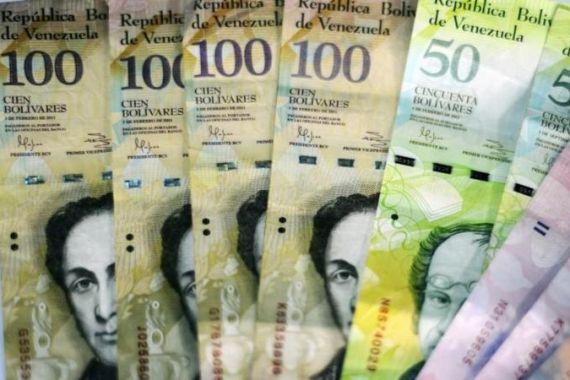S&P cuts Venezuela credit rating to B-minus
Standard & Poor’s lowers rating one step, citing “radicalisation” of economic policy.

Standard & Poor’s has cut Venezuela’s credit rating by one step and warned that another downgrade may follow, citing the “growing radicalisation of economic policy”.
The rating agency said on Friday that growing state intervention in the economy was expected following December 8 local elections in which the ruling Socialists won a majority of votes.
Keep reading
list of 4 itemsChina’s economy beats expectations, growing 5.3 percent in first quarter
Inside the pressures facing Quebec’s billion-dollar maple syrup industry
Manipur’s BJP CM inflamed conflict: Assam Rifles report on India violence
S&P cut the rating to “B-“, already well into junk-bond territory, and added a “negative outlook” to the rating.
Investors were alarmed last month when President Nicolas Maduro forced merchants to slash prices of consumer goods as part of an “economic offensive” to rein in annualised inflation of 54 percent.
|
|
| President Maduro’s pledge in November to use his new decree powers to cut shop keepers’ profits spooked business owners |
S&P said it foresees the continuation of “erratic” economic policies by Maduro’s government, seven months after he took the presidency following the death of his longtime mentor Hugo Chavez.
In November, the National Assembly granted Maduro power to rule by decree for one year to fight corruption and respond to what he has called an “economic war” unleashed by the opposition with US support.
He quickly rolled out a series of measures to force price cuts, notably on household appliances and cars, and threatened speculators with prison.
S&P pointed to a sharp rundown in the country’s international reserves over the past two months as the government tries to get inflation under control.
That has left Venezuela even more dependent on oil income, and weakens the government’s ability to endure any financial shocks, the agency said.
S&P said it expected Caracas to continue confronting fiscal pressures by devaluing the bolivar, increasing the local currency value of oil receipts.
Even so, it expects further deterioration of the situation, which “could increase the risks of a government debt default over the next two years”.